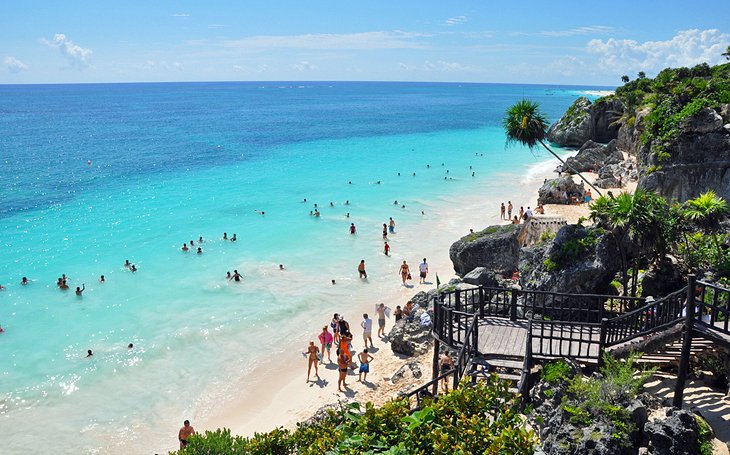- Less stress and greater emotional well-being
Reducing stress seems the most obvious of the benefits of traveling. Although it is a brief outing and a destination not too far away, leaving behind the routine and the frenetic pace of life in the city allows you to disconnect, leave behind the anguish and enjoy the present. But be careful: attitude is important, because there is also the so-called “holiday stress” , a state of tension caused by travel preparations, insecurities and difficulties that it may bring, the feeling that time will not be enough to do in fate all “what to do”, and so on.
Thus, the medicine can be worse than the disease. Many studies endorse these data, such as one carried out by researchers from Arizona , United States, according to whose conclusions women who take more vacations are less likely to be tense , tired or depressed and are even more satisfied in their marriage. That is, they have a higher quality of life.
- The brain, grateful
Until a long time ago it was believed that the brain, from adulthood, was no longer modified. However, science has shown that this is not the case: neurons can create new connections , and new neurons can even form, throughout life. “For this, it is key to train and stimulate our brain,” explained José Manuel Moltó , member of the board of directors of the Spanish Neurology Society (SEN), “and there are three key elements to do so: confronting our brain with novelty, variety and challenge. Traveling meets all three. “
Situations as simple as the need to adapt to new sensations, landscapes, sounds, aromas, etc., making a mental map of where one is or having to communicate in another language stimulate the brain and make it more plastic and more creative. “Traveling mainly requires learning and memorizing everything strange until everything is normal and familiar. This is a challenge for your brain and is like an accelerated training”, adds Moltó. The SEN specifies that these benefits even reach people who already have a neurological disease.
- A stronger and healthier heart
A study conducted in the United States found that traveling reduces the risk of heart attack, especially for older people. Statistics indicate that men who travel frequently have a 21% lower chance of having a heart attack . “Holidays can be good for your health”, recommend the conclusions of this work.
For its part, an investigation carried out by scientists from the University of Jyväskylän , Finland, also found a relationship between body mobility , caused by the “collective social activity” that occurs in travel, and a lower risk of mortality. Although the works in this sense generally refer to older people, it is clear that physical activity derived from travel is beneficial for anyone, especially for those who have a very sedentary daily routine.
- Strong self-esteem
Every trip represents a sum of challenges : moving around, getting used to an unknown place, relating to its people. And the more distant the destination, the greater the challenge, since it implies coming into contact with exotic customs, unknown languages and, inevitably, problems of various kinds. Finding the resources to solve them and be able to get ahead enhances self-esteem like few other things can.
The trip is also a source of future memories and anecdotes to tell, not to mention the possibilities that social networks offer in this regard. As George Eliot, a pseudonym for the 19th century British writer Mary Anne Evans, wrote, “Our wanderings travel with us from afar, and what we have been makes us what we are.” All of this also contributes to building self-confidence.
- Greater scope to deal with problems
In his book Go Away Just For The Health of It (something like ” Go Away Just For How Healthy It Is”), published in 2000, the prestigious Canadian physician Mel Borins wrote: stressful life. It can help improve your perspectives, provide new points of view and allow you to develop new coping strategies. “
That’s what it’s all about: when one knows other realities, one takes distance from his own life and can see his own problems in their true dimension. Often after a trip many people value much more what they have and stop complaining (or complain less) about what they lack, which also leads to greater emotional well-being . And also, to quote another 19th century classic, Gustave Flaubert: “traveling makes you modest, because it makes you see the small place you occupy in the world.”
- Traveling makes you happy
The psychologist Thomas Gilovich, a professor at Cornell University, United States, has had an object of study for years: happiness. From his studies , he has come to a conclusion that, anyway, many people know or intuit: traveling brings greater happiness than buying things. The reason is that stored memories , the sum of experiences, provide long-term pleasure and well-being, much longer than the satisfaction you feel when buying something lasts.
Furthermore, not only is the trip more enjoyable than material goods, but the anticipation of the experiences to be lived during the trip generates a greater sense of happiness than the anticipation of buying objects. In Gilovich’s words , experiences improve social relationships, are valued more in themselves and less in comparison with those of other people, and are part of the identity of the person who lives them.


